Chewing gum is a common habit that many people engage in regularly. While it is often seen as harmless, some individuals have raised concerns about whether chewing gum can cause acne.
Acne is a common skin condition that affects many people, and it can be caused by a variety of factors, including hormonal imbalances, genetics, and lifestyle habits.
Understanding Acne
Acne is a common skin condition that affects millions of people worldwide. It occurs when hair follicles become clogged with oil and dead skin cells, leading to the formation of whiteheads, blackheads, pimples, or cysts. Acne can occur on any part of the body, but it is most commonly found on the face, neck, chest, and back.
Acne is often associated with puberty, but it can affect people of all ages. It can also be caused by a variety of factors, including genetics, hormones, stress, diet, and certain medications.
While acne is not a serious medical condition, it can be a source of emotional distress and may lead to scarring if left untreated.
There are several types of acne, each with its own set of symptoms and treatment options. These include:
- Whiteheads: Small, raised bumps that are white or yellow in color and are caused by clogged pores.
- Blackheads: Small, raised bumps that are black in color and are caused by clogged pores that have opened up and been exposed to air.
- Papules: Small, red bumps that are tender to the touch and can be painful.
- Pustules: Similar to papules, but with a white or yellow center filled with pus.
- Nodules: Large, painful bumps that are deep under the skin and can last for weeks or months.
- Cysts: Large, painful bumps that are filled with pus and can cause scarring.
Acne can be treated with a variety of over-the-counter and prescription medications, including topical creams, gels, and lotions, as well as oral antibiotics and birth control pills. In some cases, more aggressive treatments such as isotretinoin (Accutane) may be necessary.
While there is no definitive cure for acne, it can be managed with proper treatment and self-care. This includes washing the affected area with a gentle cleanser, avoiding picking or squeezing pimples, and avoiding triggers such as stress, certain foods, and harsh cosmetics.
Chewing Gum Ingredients
Chewing gum is made up of several ingredients, including sweeteners, flavorings, and gum base. Some of these ingredients may contribute to the formation of acne.
One of the common sweeteners used in chewing gum is aspartame. Aspartame is an artificial sweetener that has been linked to acne breakouts. It is believed that aspartame can stimulate the production of insulin, which can lead to an increase in sebum production.
Another common sweetener used in chewing gum is sorbitol. Sorbitol is a sugar alcohol that is often used as a sugar substitute. While it is generally considered safe, some studies have suggested that it may contribute to the formation of acne.
Gum base is another ingredient found in chewing gum. The gum base is made up of several ingredients, including elastomers, resins, and waxes. Some of these ingredients may be comedogenic, meaning they can clog pores and contribute to the formation of acne.
Flavorings are also added to chewing gum to give it a unique taste. Some flavorings, such as cinnamon and mint, have been known to cause skin irritation and may contribute to the formation of acne.
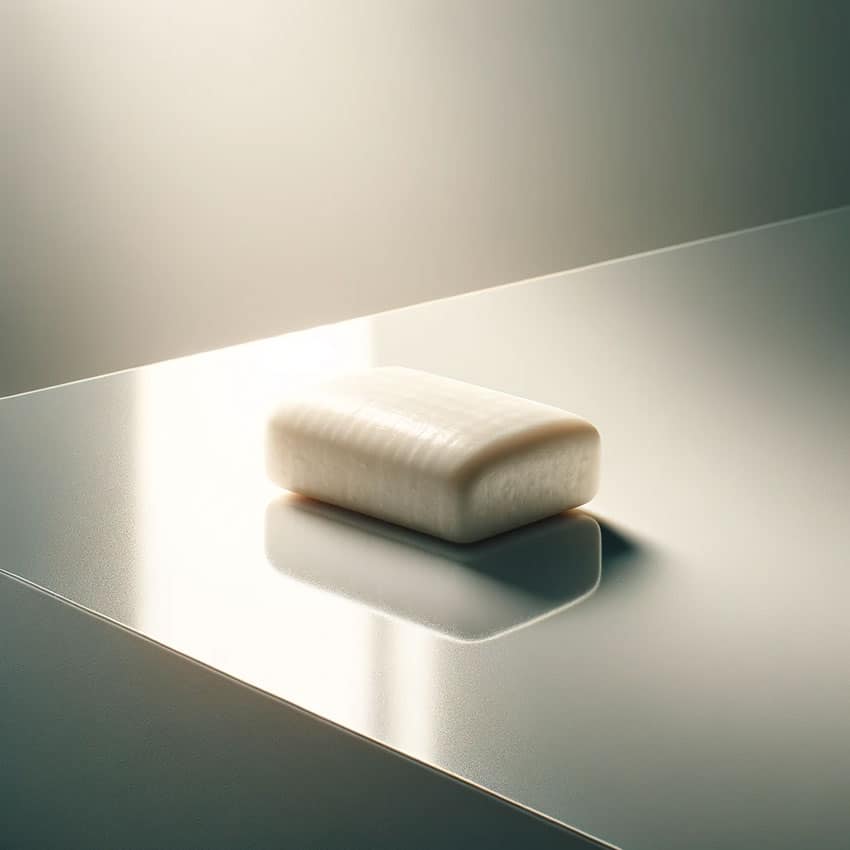
Impact of Sugar on Acne
While the relationship between diet and acne is still being studied, some studies suggest that sugar consumption may be linked to acne breakouts.
One study found that foods with a high glycemic index, such as refined carbohydrates and sugary drinks, can trigger breakouts. These foods cause a spike in blood sugar levels, which in turn can lead to an increase in insulin production and inflammation.
Increased insulin production can also lead to an increase in sebum production, an oily substance that can clog pores and lead to acne breakouts. Additionally, some artificial sweeteners commonly used in sugar-free gum, such as xylitol, have been found to increase the growth of acne-causing bacteria.
It is important to note that not all individuals will experience acne breakouts as a result of sugar consumption. However, those who struggle with acne may want to consider reducing their intake of sugary foods and drinks, as well as limiting their consumption of gum containing artificial sweeteners.
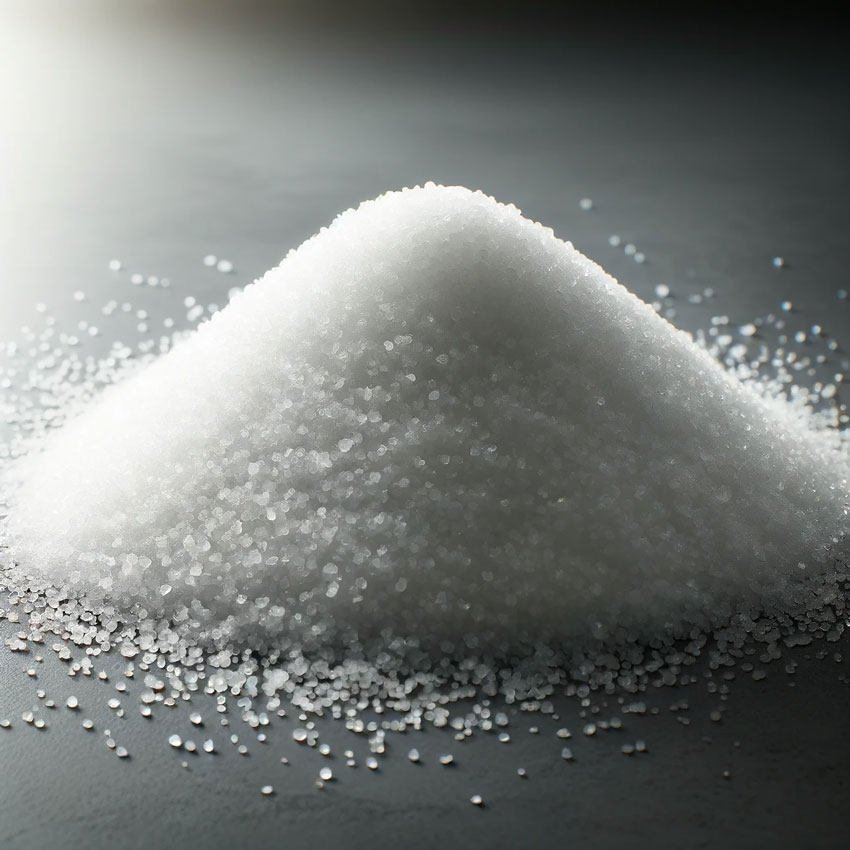
Artificial Sweeteners and Acne
Artificial sweeteners are commonly used in sugar-free chewing gum. One study found that xylitol, an artificial sweetener, can increase the growth of acne-causing bacteria.
Another study found that chewing gum can increase the production of sebum, an oily substance that can clog pores and lead to acne breakouts.
Sucralose is another artificial sweetener that has been linked to acne. Some people have reported that consuming sucralose leads to an increase in their acne breakouts. This could be due to the fact that sucralose can disrupt the balance of bacteria in the gut, which can affect the skin.
It’s important to note that not all artificial sweeteners are created equal. Some, like stevia, have been shown to have no effect on acne. However, it’s still a good idea to limit your consumption of artificial sweeteners, as they can have other negative health effects.
Effects of Aspartame
Aspartame is a common artificial sweetener used in many chewing gums. While it has not been conclusively linked to any serious health problems, some studies have suggested that it may have negative effects on the body.
One of the potential effects of aspartame is an increase in body weight. While aspartame contains only 4 calories per gram, similar to sugar, it is around 200 times sweeter than sugar. This can lead to an increased desire for sweet foods and may contribute to overeating.
Another potential effect of aspartame is an increase in the production of sebum, an oily substance that can clog pores and lead to acne breakouts.
Some people may also be sensitive to certain ingredients in chewing gum, such as artificial sweeteners or flavors, which can trigger skin irritation and breakouts.
While the evidence is not conclusive, some experts suggest that aspartame may have other negative effects on the body as well. For example, some studies have linked aspartame to an increased risk of cancer, although the evidence is not strong enough to draw any definitive conclusions.
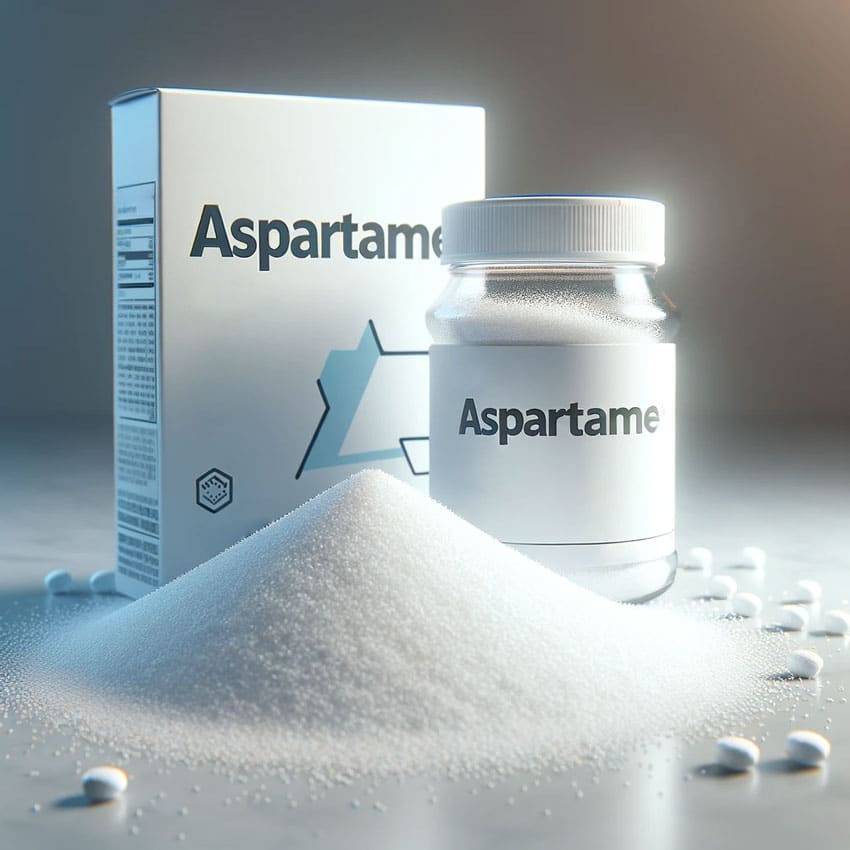
Role of Spearmint
Spearmint tea has been suggested as a possible remedy for acne due to its anti-inflammatory and antioxidant properties. According to an article in the Journal of Medicinal Food, spearmint tea contains compounds called polyphenols, specifically rosmarinic acid, which has been shown to have anti-inflammatory and antioxidant effects.
While spearmint tea has not been directly linked to acne reduction, its anti-androgenic properties may help control hormonal acne. Androgens, such as testosterone, can trigger the production of sebum, an oily substance that can clog pores and lead to acne breakouts.
Spearmint tea may help to reduce androgen levels, which could potentially reduce the severity of acne.
It is important to note that spearmint tea should not be considered a replacement for medical treatment for acne. It is always recommended to consult with a healthcare professional before trying any new remedies or treatments.
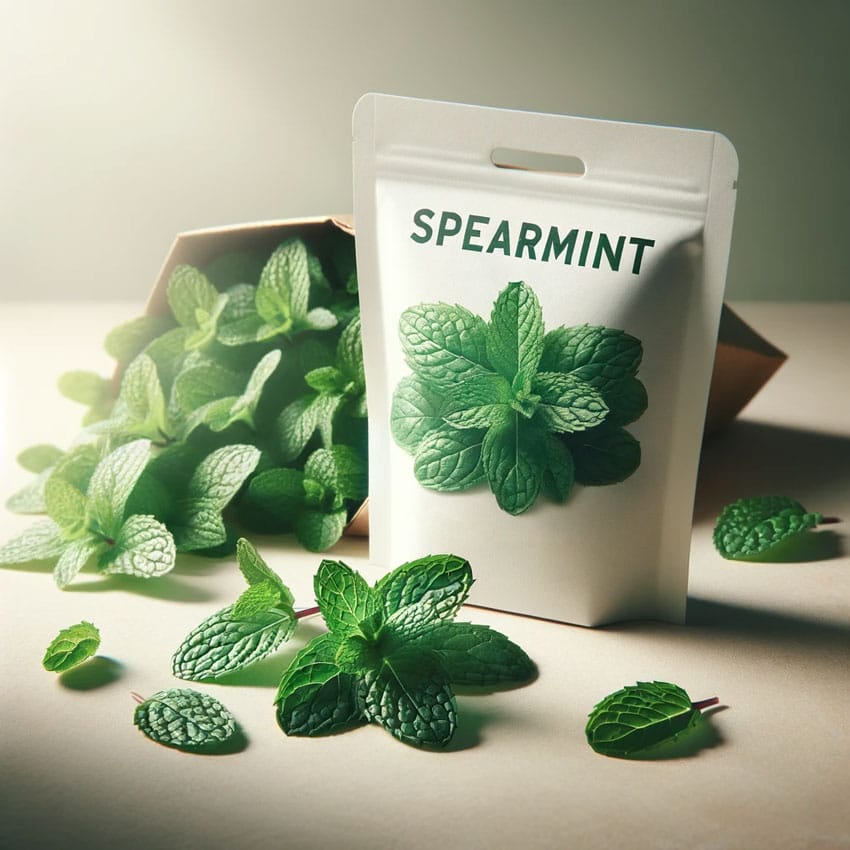
Chewing Gum and Hormonal Balance
There is a growing body of evidence suggesting that certain types of chewing gum may disrupt hormonal balance and contribute to the development of acne.
Specifically, some studies have found that artificial sweeteners commonly used in sugar-free gum, such as xylitol, can increase the growth of acne-causing bacteria. Additionally, chewing gum can increase the production of sebum, an oily substance that can clog pores and lead to acne breakouts.
Sebum production is regulated by hormones, particularly androgens like testosterone. When androgen levels are high, sebum production increases, which can lead to acne.
Some researchers believe that chewing gum may disrupt hormonal balance by stimulating the production of androgens, although more research is needed to confirm this hypothesis.
It is also worth noting that some types of chewing gum contain ingredients that may have a negative impact on overall health. For example, sugar-free gum often contains artificial sweeteners, which have been linked to a range of health problems, including metabolic disorders and digestive issues.
Stress and Acne
Stress is a common trigger for acne breakouts. It can affect a person’s hormonal balance and the skin’s immune function, leading to an increase in acne severity.
When a person is stressed, their body produces more cortisol, a hormone that can increase oil production in the skin and cause inflammation.
In addition, stress can also lead to unhealthy habits that can worsen acne. For example, some people may turn to junk food, alcohol, or tobacco as a way to cope with stress, all of which can contribute to acne breakouts.
To manage stress-related acne, it is important to practice healthy stress management techniques. This can include exercise, meditation, deep breathing, or talking to a therapist.
In addition, adopting a healthy lifestyle that includes a balanced diet, regular exercise, and plenty of sleep can also help reduce stress levels and improve overall skin health.
It is important to note that while stress can contribute to acne breakouts, it is not the sole cause. Other factors, such as genetics, hormonal imbalances, and skincare habits, can also play a role in the development of acne. Therefore, it is important to work with a dermatologist to develop a personalized treatment plan that addresses all of the underlying causes of acne.
Chewing Gum and Oral Health
While chewing gum has been a popular habit for many years, it is important to consider its impact on oral health. Chewing gum can have both positive and negative effects on the mouth, depending on the type of gum and how it is used.
One of the primary benefits of chewing gum is that it can help to stimulate saliva production. Saliva plays an important role in oral health by helping to neutralize acid in the mouth, which can prevent tooth decay. Additionally, saliva can help to wash away food particles and bacteria that can lead to bad breath.
However, not all types of gum are created equal. Some types of gum contain sugar, which can actually contribute to tooth decay. Sugar-free gum is a better option for those who want to enjoy the benefits of chewing gum without the negative impact on oral health.
Another potential issue with chewing gum is that it can cause jaw pain or discomfort. This is especially true for those who chew gum excessively or who have a pre-existing jaw condition. If you experience pain or discomfort while chewing gum, it may be best to limit or avoid this habit altogether.
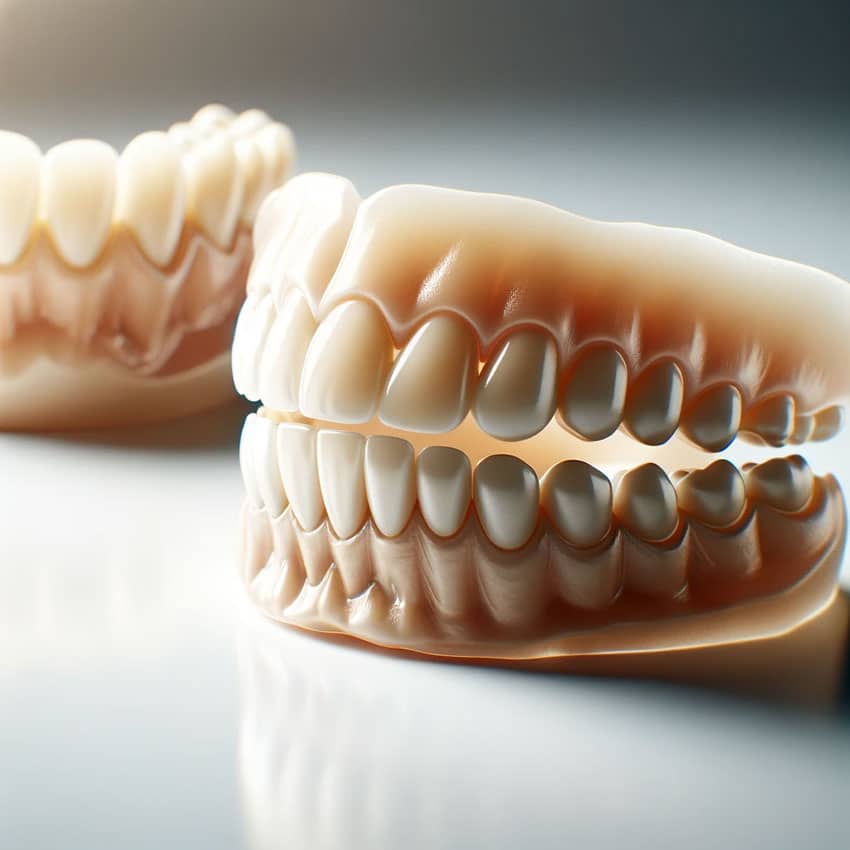
Conclusion
While there is some debate about whether or not chewing gum can cause acne, the evidence suggests that there may be a link between the two. Some of the ingredients in chewing gum, such as artificial sweeteners and flavorings, can affect hormone levels which, in turn, can lead to an increase in sebum production. This excess sebum can clog pores and contribute to the development of acne.
However, it is important to note that not all people who chew gum will develop acne, and there are many other factors that can contribute to the development of this condition. These can include genetics, diet, stress levels, and skincare habits.
If you are someone who is prone to acne, it may be worth considering cutting back on your gum-chewing habit to see if it has any effect on your skin.
Additionally, maintaining a healthy diet, managing stress levels, and using non-comedogenic skincare products (meaning they do not clog pores) can all help to reduce the risk of developing acne.

